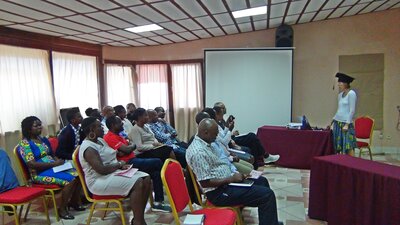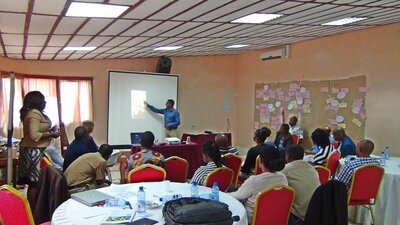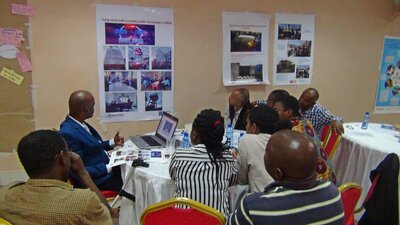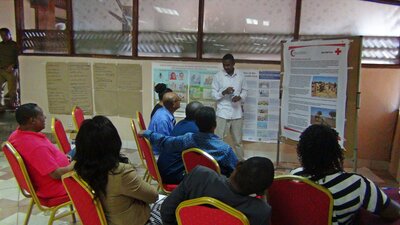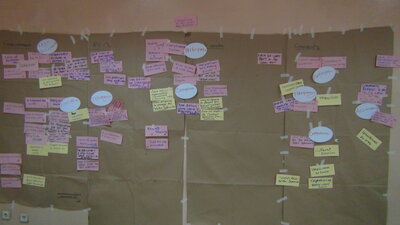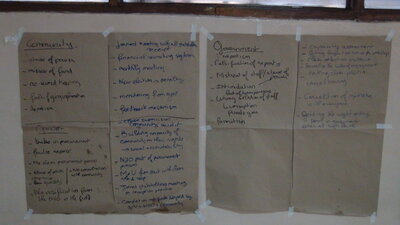Helvetas welcomed eight members of the Swiss Water Consortium in Nampula for the Regional Workshop from 16 to 20 July 2018. The objectives of this meeting were strengthening of the relationships between the Swiss NGOs active in different East African countries, the exchange of experiences on good practices, besides being an opportunity to learn from each country and become a strong voice for advocacy for water integrity.
The workshop featured different highlights:
The first day of the workshop served to update on the consortium, and the projects’ evolution, and results achieved. The topic of water integrity was introduced, which allowed to understand why integrity can help resolve many of the bottlenecks at different levels. The participants, divided into four groups, performed an exercise, placing themselves in the position of the government, communities, NGOs and private operators. During the exercise, it was concluded that lack of integrity - transparency, accountability and participation - is one of the major reasons for rural and peri-urban water services delivery failure.
The second day began with a presentation on the Integrity Pact Tool, that can be used to ensure integrity, for example in a procurement process. One of the most important points of this presentation was the conclusion that corruption can be mitigated, but not completely eliminated.
In addition, the Integrity Management Toolbox for Small Water Supply Systems was presented. It is a methodology used in Kenya and Ethiopia that provides tools that are directly related to integrity and that help improve transparency, accountability and customers' participation.
The following good practices have been shared:
- Using social audit to monitor public investment in WASH
· When knowledge reduces costs
· Management of drinking water supply by a private operator
- Service delivery through private operator
The third day was reserved for the field visit to the district of Ribáuè in Nampula. The participants, divided into two groups, visited the water supply system of Ribáuè village. One group visited the consumers, where part of Toolbox methodology was used, and another had a meeting with the private operator and the water department at district level.
The fourth day, after the evaluation of the field visit, was dedicated to presentations of other good practices from the project teams, in addition to writing down good practices or experiences of other projects that they would like to implement in their projects. The fifth day was reserved to discuss the concept of blue schools and experiences with this approach.


